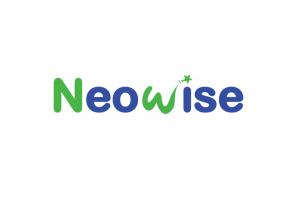Neowise breaks AI vision limits with ‘NeoVision - targeting industrial innovation through NPUs and active learning
Neowise’s NeoVision slashes AI vision costs by 95% with NPUs and active learning, targeting robotics, safety, and global edge AI markets.
PANGYO, GYEONGGI-DO, SOUTH KOREA, September 12, 2025 /EINPresswire.com/ -- Neowise (CEO Charlie Shin) is an AI vision startup founded in April last year. By combining computer vision with silicon photonics, the company pursues its vision of “bringing intelligence to all objects and spaces to expand human potential.”In the interview, CEO Shin first pointed out the limitations of conventional GPU-based AI systems. He explained that while GPUs offer high computational performance, they consume over 350W of power and require costly servers and cooling infrastructure, making them unsuitable for battery-powered devices such as robots and drones. The fact that GPU modules cost between 1.5 million and 20 million KRW also adds to the financial burden.
In contrast, Neowise applied NPUs (neural processing units) optimized for AI inference, which significantly reduces hardware costs and energy consumption. Shin emphasized, “A traditional system with two cameras, a GPU server, and detection software costs about 500 million KRW for 10 units. With an NPU-equipped camera and detection PC, the system can be built for 31 million KRW, saving over 95% in costs.”
He also introduced the company’s strategy to solve the data shortage issue. He explained that “industrial sites often lack sufficient training data. We introduced auto-labeling-based active learning, which improved data training efficiency by 90% and doubled the efficiency of deep learning. By using GANs, we simulated diverse scenarios even with small datasets and solved the overfitting problem.” Neowise integrated these technologies into an “Active Learning Server” 1.0 as part of a startup support package and is now preparing to release SaaS model 2.0, integrating cameras, NPUs, proprietary software, and cloud.
Neowise’s business model is already being realized through practical applications. Shin said the company developed an NPU-equipped AI camera in collaboration with image sensor specialist SeyonTech and signed a supply contract with subway safety platform and screen door developer HerosTech, forecasting sales of 300 million KRW in 2025.
This project utilizes AI vision to enhance subway platform automatic step systems, verifying train positioning and ensuring platform safety. After the initial installation of 20 units, the goal is to expand to 800 more units. Neowise also expects its AI vision technology to be applied in industries requiring real-time data processing and high-performance inference, such as vision inspection, transportation, autonomous driving, robotics, and security monitoring.
The company also shared a blueprint for future technologies. Shin revealed that Neowise is developing an ultra-low-power AI computing engine simulator based on optical computing in collaboration with the Samsung Advanced Institute of Technology. “Next-generation AI chips using parallel optical computing will provide over 1,000 TOPS in performance and 160 TOPS/W in power efficiency, targeting speeds up to five times faster and efficiency 1,000 times higher than GPUs,” he said. He added that the memory-free nature of optical computing enables ultra-low latency of 0.01–0.1ms, enabling real-time AI vision in autonomous driving and robotics. With its optical AI accelerator, Neowise aims to implement multimodal data processing and eco-friendly AI technology simultaneously.
The team’s strength lies in its broad experience. CEO Shin and key executives are former Samsung Electronics researchers with expertise spanning AI, computer vision, robotics, product planning, marketing, and overseas sales. The company has filed 28 patents and registered 17 of them.
Shin outlined his growth strategy, saying, “Initially, we will generate revenue in industrial vision and traffic safety in Korea, then expand into hardware modules and software subscription models to target the global AI vision market.”
Concluding the interview, Shin said, “Through Edge AI and optical AI accelerators, we will enhance safety and efficiency in industrial sites while leading innovation in future mobility fields such as robotics and autonomous driving. We will continue to pursue our mission of bringing intelligence to all objects and spaces to expand human potential.”
Pangyo Techno Valley is a global R&D hub that integrates Research (R), People (P), Information (I), and Trade (T) across the IT, BT, CT, NT, and mobility sectors. It is a leading innovation cluster in Gyeonggi-do, established to drive technological innovation, talent development, job creation, and international business competitiveness.
The Gyeonggi Business and Science Accelerator’s Techno Valley Innovation Headquarters has continuously promoted Pangyo Techno Valley’s value by hosting events such as the Pangyo Evening Meet-Up, Pan-Pan Day, Joy of Work in Pangyo, and Pangyo Startup Investment Exchange In-Best Pangyo. These initiatives have facilitated networking between Pangyo companies, domestic and international investors, and the media. Similar events are planned for this year to support the growth and global expansion of Pangyo startups through various assistance programs.
Kim Seung Yeon
Gyeonggi Business & Science Accelerator
+82 31-776-4834
email us here
Visit us on social media:
LinkedIn
Instagram
Facebook
YouTube
Other
Interview with Charlie Shin, CEO of Neowise
Legal Disclaimer:
EIN Presswire provides this news content "as is" without warranty of any kind. We do not accept any responsibility or liability for the accuracy, content, images, videos, licenses, completeness, legality, or reliability of the information contained in this article. If you have any complaints or copyright issues related to this article, kindly contact the author above.



